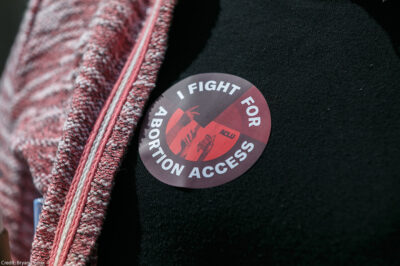Most people don’t think twice when they visit their local pharmacy to fill a prescription. A doctor writes a prescription and a pharmacy dispenses it, right? Well, more and more people are discovering that the answer is often not quite that simple.
Back in 2005, the Washington State Board of Pharmacy began to hear reports of pharmacies and pharmacists denying patients access to prescriptions — usually contraceptives — because of moral, ethical, or religious objections. State regulations were silent on the issue and so the Board took on the lengthy task of developing rules.
The result: new rules that protect a patient’s right to access health care without discrimination or delay, and which make clear that a pharmacy is responsible for filling all valid prescriptions and satisfying all lawful requests for drugs like emergency contraception that certain patients can get without a prescription from behind the counter. Under the rules, pharmacies must dispense medications regardless of pharmacists’ personal feelings about a particular medicine. Pharmacists may ask another pharmacist on duty to provide the medicine, but in all cases the pharmacy must fill the prescription in a timely manner.
On July 26, 2007, the day the rules took effect, two pharmacists and a pharmacy owner challenged them in court. Yesterday, the ACLU of Washington State, along with several other groups, sought to join the state of Washington’s defense of the new regulations on behalf of patients, a physician, and concerned women from across the state.
There is no doubt that a delicate balance exists between a patient’s right to access medication and a pharmacist’s right to object on a moral, ethical, or religious basis. Committed to both issues, the ACLU has worked to develop a framework that protects the health care needs of patients and the religious freedom of individual pharmacy employees. Our publication Religious Refusals and Reproductive Rights: Accessing Birth Control at the Pharmacy issued in April puts forth the ACLU’s position:
Denying women access to birth control — medication that only women use — is sex discrimination, and pharmacies have the responsibility to ensure that women are able to purchase birth control at their stores without added delay. Pharmacies should try to accommodate individual pharmacists with a religious objection so long as the pharmacy makes sure that women get their pills at the same pharmacy without added delay. This protects the health care needs of women and the religious freedom of individual pharmacy employees.
For now, we will have to wait and see how all this plays out in Washington, but as more and more state pharmacy boards tackle this issue similar conflicts are bound to start cropping up across the country. In the meantime, learn more about what you can do if you are unfairly denied access to a prescription at a pharmacy.


